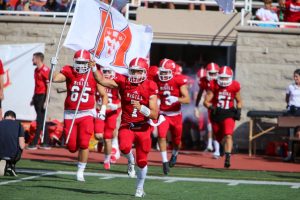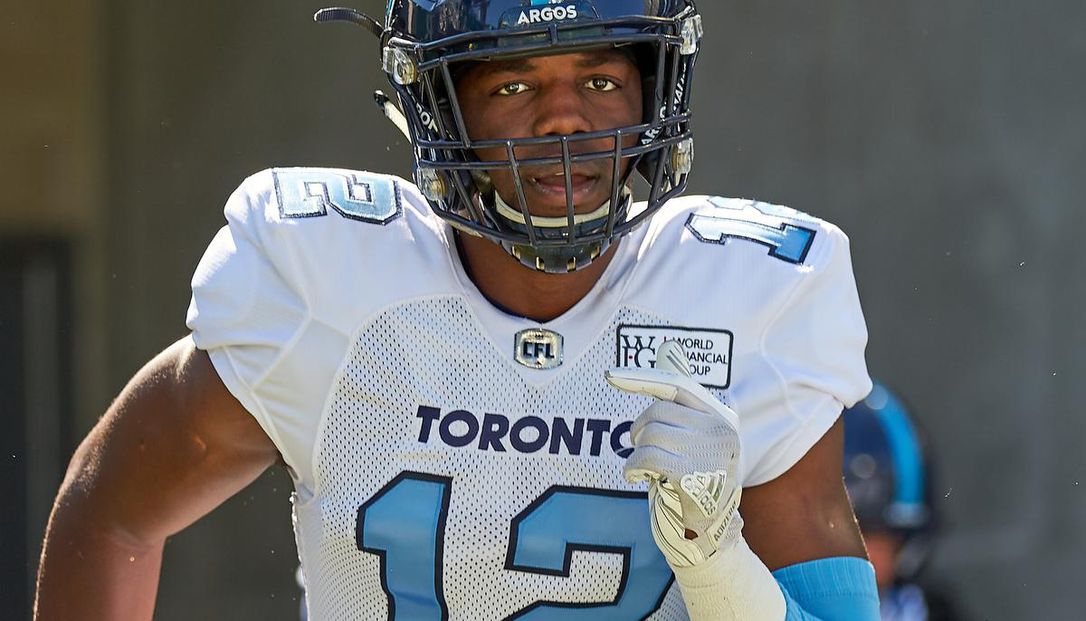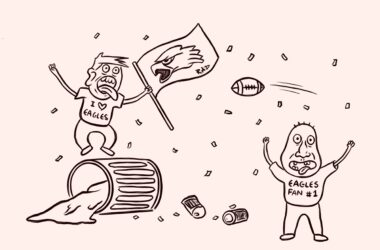In August 2020, the Canadian Football League (CFL) cancelled the 2020 season due to financial difficulties caused by the COVID-19 pandemic. Many senior officials in the league attempted to prevent the cancellation and a committee worked in the weeks leading into September 2020 to possibly salvage the lost year with a shortened season held in Manitoba. However, the federal government did not grant the league any financial support, a decision that effectively ended any possibility of the CFL resuming play this calendar year.
Despite a significant loss of revenue with the formal cancellation, the league has maintained a positive vision for the future, striving to preserve the world’s second largest professional football league.
“We are absolutely committed to 2021, to the future of our league and the pursuit of our vision of a bigger, stronger, more global CFL,” league commissioner Randy Ambrosie said in a statement following the government’s decision.
However, earlier in the year, Ambrosie had warned that a cancelled season could jeopardize the future of the CFL. This announcement left many involved with the league worried about the stability of its organizations moving forward, particularly those that have witnessed the importance of the league to football in Canada.
Nelkas Kwemo, raised in Montreal, is currently a linebacker for the Toronto Argonauts. Drafted 18th overall by the Argonauts in 2018, he has remained with the club ever since. Kwemo attended Queen’s University in Kingston, Ontario, where he had an impressive career as a Gael. He earned a spot on the 2018 first team U-Sports All-Canadian roster.
Kwemo described the difficulties that the cancelled 2020 season brought upon his own life and the lives of teammates, coaches, personnel, and staff who have shared a bond with the linebacker.
“The cancelled season was heartbreaking for so many people who depend on the league to provide a living for themselves and their families,” Kwemo said in an email to The McGill Tribune. “Many players, whose contracts are contingent on games being played, are forced to make ends meet with the amount provided through the Canadian Emergency Wage Subsidy or find other jobs.”
Thankfully for Kwemo and most of his fellow Canadian teammates, their university careers also led to undergraduate degrees, giving them opportunities to pursue jobs outside of the gridiron. The impact of their education has been strengthened by initiatives taken by the CFL Players’ Association to partner with Canadian universities and employers to further the education and work experience of student athletes. These initiatives include internships, work-study placements, and networking opportunities.
Kwemo has taken advantage of the temporary hiatus, working at Barometer Capital Management, a hedge fund in Toronto. He plans to further his career in investment banking at Scotiabank in January 2021.
“My personal goals are a mixture of business, finance and [media] upon retirement from football,” Kwemo wrote. “To meet these goals, I am putting myself in a position to have as many options as possible on the way out.”
When asked about the uncertainty of both his professional football career and the CFL moving forward, Kwemo was optimistic, although he understood that many issues remain unresolved.
“I am confident the current management team is doing all they can to secure the future of the CFL, but there [is] still lots to be decided,” Kwemo said. “A new Collective Bargaining Agreement is one of the top priorities in the future and multiple big questions still need to be answered. What are the circumstances which players will be asked to play in the coming years given the league’s financial position? What measures will be taken to prevent the spread of COVID amongst players, coaches and fans? All this still needs to be sorted out while we wait.”
The uncertainty of the league’s position moving forward has raised some concerns for ambitious Canadian football players who have seriously considered playing professional football in their future. Despite an unknown future, many remain motivated in their pursuit of a professional football career.
Rasheed Tucker is currently one of the top running backs in U SPORTS football and remains a key piece of the Queen’s University Gaels offence following his impressive second campaign during the 2019 season. Tucker was born in Ajax, Ontario, and played for two programs that have produced Canadian football talent at various levels: The Upper Canada College Blues in high school and the Durham Dolphins in the Ontario Provincial Football League.
“Playing professional football has been a dream of mine since I was about 10 years old,” Tucker wrote in an email to the Tribune. “I have definitely put thought towards spending some time in the CFL after my collegiate career. The financial viability of the league is a very complex situation, though after chatting with CFL players, I do not expect the league to go anywhere. I hope the league will recover from the challenges created due to COVID-19, and as such, I plan to remain optimistic and stay steady on my future athletic aspirations.”
Tucker’s football career in Canada has been positively impacted and influenced by engaging with players and coaches from the CFL. These experiences have led him to understand the league’s impacts on all levels of football in the country and its necessity in developing homegrown talent and NFL stars.
“In terms of [the] high school to university football transition, athletes coming from high school programs with coaches who had professional football experience were many steps above the average rookie when it came to schematic understanding,” Tucker wrote. “Personally, my high school coach Christian Heffernan was a former CFL and [U SPORTS wide receiver] and this made a world of difference. The recycling of knowledge with the next generation makes a huge impact and is critical to the advancement of Canadian football.”
Reflecting on a challenging and uncertain semester, Tucker understands the mindset many Canadian football players share moving forward.
“Everyone [who is] hungry to make their dream a reality knows [that] they must work harder than ever,” Tucker wrote. “Increased challenges just require increased efforts, and I believe that all the true competitors out there that really deserve a [CFL opportunity] will still find a way to earn it.”

At McGill, the effects of the league’s closure have been felt on campus. The Montreal Alouettes have historically hosted their home games at Percival Molson Stadium, with fans regularly gathering at Douglas Hall and Jeanne Mance Parc before kickoff. Sharing the same stadium has granted many unique opportunities for the McGill Redbirds football team.
“It is great to share our stadium with the Montreal Alouettes,” Dimitrios Sinodinos, starting quarterback for McGill wrote in an email to the Tribune. “Sometimes our head coach Ron Hilaire will have a CFL player visit us at practice and give a speech to the team. Every summer the Alouettes would host events for kids to come practice football for the day at Percival Molson.”
On a personal level, Sinodinos has taken advantage of McGill’s connection to the Alouettes.
“I have had the opportunity to really get close to the team last year when I was selected by the Alouettes for the QB internship program, which allowed me to participate in their rookie training camp as one of their quarterbacks,” Sinodinos wrote.

Sinodinos, Tucker, and Kwemo all feel it is important to continue to persevere and work through the pandemic. Their outlook is a testament to the fact that Canadian football at all levels across the country will continue through the current difficult times.









Good article, thanks!